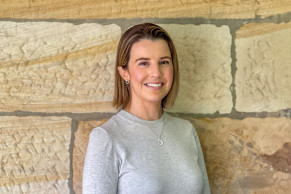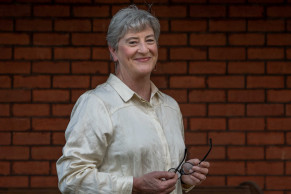Issue 74: Forging new pathways
About this resource
Progress reports: First Nations and PHN work
Living in Larger Bodies guidelines
Editor’s Note:
It is an exciting and constructive time to be involved in the eating disorders sector. NEDC’s dedication to building the system of care - towards effective, equitable and accessible treatment for all - powers all our work, and we have taken some significant steps forward. This includes: launching free, evidence-based, accredited online eating disorder training for GPs; reaching a milestone with partners the Australia & New Zealand Academy for Eating Disorders (ANZAED) on the development of credentialing criteria and profession eligibility; developing tailor-made tools for PHNs; formulating clinical practice guidelines for the treatment of eating disorders for people living in larger bodies and; sharing our breadth of knowledge with peers at the upcoming ANZAED conference.
We were thrilled with the very well-attended launch of our newest resource, Eating Disorder Core Skills: eLearning for GPs. The Hon David Coleman MP, Assistant Minister to the Prime Minister for Mental Health and Suicide Prevention, GP Dr Jennifer Conway, people with lived experience of an eating disorder, and NEDC's National Director Dr Beth Shelton and Clinical Resource Project Coordinator Emily Hardman introduced the learning modules. Designed to help GPs provide best practice care and improve treatment outcomes, the four-hour, five-module self-paced online training is accredited by the RACGP, GPMHSC and ACCRM. Read our report here. Please help us spread the word by sharing this flyer with health professionals or people with an interest in eating disorders here. Members who were unable to attend can watch the recording of the livestream broadcast here. See our promotional video here. Read a report on the Hon Greg Hunt MP and the Hon David Coleman MP media release here. Access the training here.
The May federal budget included $26.9 million in funding to provide support for people with eating disorders and their families, with $2.5m over two years for ANZAED and NEDC to progress a credentialing system for eating disorder treatment providers. The ANZAED and NEDC Eating Disorder Credential criteria and profession eligibility has now been finalised. National Manager Dr Sarah Trobe discusses its development and what it means to the eating disorders community. What will it look like? How will it work for people living with an eating disorder, their supports and carers, as well as the mental health professionals and dietitians providing eating disorder treatment? Read about it here. Watch ANZAED’s Dr Kim Hurst and NEDC’s Dr Beth Shelton talk about what credentialing could mean for you in this video here. Visit the Credentialing page on our website here.
Ahead of NAIDOC Week, Primary Health Project Manager Louise Dougherty reports on NEDC's collaboration over the past year with the Indigenous health sector to help support culturally safe identification and treatment of eating disorders for First Nations peoples. She also provides an update on the development of a purpose-built Eating Disorders Quality Improvement (ED QI) tool for Primary Health Networks (PHNs). The culmination of 18 months’ work, the tool will soon be available to all PHNs. Find out more here. For more information about the tool, click here. For PHN resources, click here.
NEDC’s Steering Committee has convened a Development Group for Clinical Practice Guidelines of the treatment of eating disorders for people living in larger bodies. This group aims to compile the current best practice approaches, both in assessment and treatment, for people with an eating disorder who live in a larger body. For an overview of the methods and current status of the Guideline click here. NEDC members and non-members are encouraged to take part in a workshop on these Guidelines at the ANZAED Conference.
NEDC is playing an important role in the ANZAED 19th Annual Conference on 20-21 August. NEDC National Director Dr Beth Shelton will provide a Conference keynote address: If the System Could Talk: A Brief Autobiography of the Eating Disorders Field in Australia. Past, Present, and Future. NEDC Primary Health Project Manager Louise Dougherty will provide an oral presentation, Pilot evaluation of an Eating Disorders Quality Improvement tool for Primary Health Networks in Australia and NEDC Research Lead Dr Angelique Ralph will present a workshop NEDC Clinical practice guidelines for the treatment of eating disorders for people living in larger bodies: A consultation. To book or find out more information about the ANZAED Conference, click here.
NEDC launches new GP resource
NEDC launched our newest resource, Eating Disorder Core Skills: eLearning for GPs, on June 17. The launch of this training was the first in a series of eLearning courses to support early identification, first response and treatment provision for eating disorders.
This is an exciting development and fills a gap in the need for purpose-built online eating disorder training for GPs. GPs have a crucial and multi-faceted role in the identification, intervention and pathway to treatment and recovery for a patient experiencing an eating disorder. This training will support GPs to proactively engage people with eating disorders, leading to better chances of early identification and intervention, therefore improving patient outcomes.
In the development of Eating Disorder Core Skills: eLearning for GPs, NEDC has collaborated with many people and organisations, bringing together lived experience, clinical expertise and research evidence. Experts and leaders in the field, and people with a lived experience of an eating disorder were consulted in the development of course content. NEDC collaborated with an agency for the instructional design and development of the course, to create an optimal learning experience.
Eating Disorder Core Skills: eLearning for GPs is accredited by the Royal Australian College of General Practitioners (RACGP) as a CPD Accredited Activity (40 points), the General Practice Mental Health Standards Collaboration (GPMHSC) as Mental Health CPD and the Australian College of Rural and Remote Medicine (ACRRM) under the Professional Development Program.
We will be developing more eLearning courses in this series. We are currently working on the development of a course specifically for mental health professionals and will provide more information about the release of this training soon.
Virtual launch of Eating Disorder Core Skills: eLearning for GPs
NEDC hosted a virtual launch event on Thursday 17th June 2021 to mark the release of Eating Disorder Core Skills: eLearning for GPs. The launch was an outstanding success bringing together GPs, health professionals, people with a lived experience of an eating disorder, PHN representatives, Government representatives, professional bodies and organisations, and people interested in eating disorders.
We were welcomed by the Honourable David Coleman, Assistant Minister to the Prime Minister for Mental Health and Suicide Prevention and heard about the ongoing work and support of the Government of initiatives focusing on mental health and eating disorders.
We heard from GP Dr Jennifer Conway about the important role that the GP plays in the care and recovery of a patient experiencing an eating disorder.
Tegan shared her lived experience of an eating disorder and provided an insight into the challenges she faced accessing treatment, her experience seeking help from her GP and the pathway to eating disorder recovery.
NEDC's National Director Dr Beth Shelton and Clinical Resource Project Coordinator Emily Hardman explained how the learning modules work together to provide GPs with key information that will help improve early detection, intervention, and best practice care. They also hosted a lively and informative interactive Q&A session.
The full broadcast of the virtual launch of Eating Disorder Core Skills: eLearning for GPs is available here.
About Eating Disorder Core Skills: eLearning for GPs
Eating Disorder Core Skills: eLearning for GPs is comprehensive foundational eating disorder training developed specifically for GPs. The training provides GPs with the key information needed to provide best practice care for patients with eating disorders. It is evidence-based, nationally recognised and freely accessible to NEDC members (membership with NEDC is free).
NEDC is committed the development of a skilled workforce, equipped to respond to eating disorders. Eating Disorder Core Skills: eLearning for GPs is based on the NEDC Workforce Core Competencies and the stepped system of care for eating disorders. It will equip GPs with the knowledge and skills needed to understand, identify and assess eating disorders; provide medical treatment; lead the multidisciplinary team; manage MBS items; and provide ongoing recovery support.
Eating Disorder Core Skills: eLearning for GPs is four-hour, self-paced and interactive online training which includes practical real-life scenarios and activities, videos from leaders in the field and people with a lived experience of an eating disorder, up to date resources and a formal assessment.
Emily Hardman is NEDC’s Clinical Resource Project Coordinator. She is the project lead for NEDC’s evidence-based open access online introductory training, and over the past year has been leading the development of Eating Disorder Core Skills: eLearning for GPs. Emily is passionate about building an interested and skilled eating disorder workforce to support access to treatment and recovery outcomes for people experiencing eating disorders. Emily is an Accredited Practising Dietitian with a background working as a clinical dietitian in mental health and private practice. She has experience providing care and treatment to people with eating disorders and body image issues, and their families and supports.
Credentialing update
Over the past 12 months, NEDC has continued to work in partnership with the Australia & New Zealand Academy for Eating Disorders (ANZAED) to develop a credentialing system for eating disorder treatment providers. This initiative is by recommendation of the MBS Working Group on Eating Disorders and with the financial support of the Australian Government.
Credentialing is a way to formally recognise a clinician’s qualifications, knowledge, training, and professional development activities needed to meet minimum standards for delivery of safe and effective eating disorders treatment. The ANZAED Eating Disorder Credential is for mental health professionals and dietitians providing treatment for people living with an eating disorder and is designed to sit across all diagnostic presentations and public and private treatment settings. ANZAED and NEDC have received a number of questions about the professions eligible for the Credential, especially in relation to medical professionals. The Credential reflects the provision of eating disorder-specific mental health treatment or dietetic treatment, not for other services such as medical monitoring, team leadership or management, or other medical or mental health treatment. The role of other members of the multi-disciplinary care team such as medical practitioners, allied health professionals, and peer workers of course remains crucial and significant.
Following the comprehensive consultation completed throughout 2019 and 2020, ANZAED and NEDC have worked towards developing a system that aligns with the feedback that we received from those with lived experience of an eating disorder, including families and supports, clinicians, and referrers. First and foremost, the Credential aims to connect people living with an eating disorder, their families, and supports with a treatment provider more easily. In doing so, we increase the chance of timely intervention and positive treatment outcome.
ANZAED and NEDC have recently announced the Credential criteria and profession eligibility and more information on these can be found here. Training is an essential element of the Credential and building a skilled workforce, and NEDC continue to work closely with training providers from across Australia to align eating disorder training with the recently released ANZAED Clinical Practice and Training Standards and the NEDC Core Competencies and Credential criteria. We also strive to ensure that there are adequate training opportunities to support clinicians across the eligible professions to access the training they need in order to apply for the Credential.
NEDC are committed to building a safe and effective treatment of care for those living with an eating disorder, and the Credential aims to connect pieces of this system together. We look forward to hearing from you and working with you as we move towards Credentialing applications opening in late 2021.
If you have any questions, please do not hesitate to reach out to the credentialing project team at connected@anzaed.org.au. ANZAED and NEDC will continue to inform you of progress with the project in the coming months through our member emails, social medial platforms, and websites.

Dr Sarah Trobe is NEDC’s National Manager and project manager on the credentialing project, a joint initiative with ANZAED. Sarah is a clinical psychologist and has held clinical positions at the Royal Children’s Hospital and private practice as well as working with The Victorian Centre of Excellence in Eating Disorders (CEED) with a focus on service development, case consultation, multidisciplinary care coordination, and education and training provision. Sarah’s interests lie in the link between physical health and mental health and current care structures in this field, and she is passionate about setting up strong treatment networks and systems across the country.
Progress reports: First Nations and PHN work
First Nations
Next week (4-11 July) marks National NAIDOC Week 2021, with the theme of “Heal Country, heal our nation”. This theme calls for stronger measures to recognise, protect, and maintain all aspects of Aboriginal and Torres Strait Islander culture and heritage. NAIDOC 2021 invites the nation to “embrace First Nations’ cultural knowledge and understanding of Country as part of Australia's national heritage and equally respect the culture and values of Aboriginal peoples and Torres Strait Islanders as they do the cultures and values of all Australians” (Commonwealth of Australia, 2021).
NEDC has been working to help build a culturally safe system of care for eating disorders in Australia, with research suggesting that the prevalence of eating disorders may be equal (Mulder-Jones et al., 2017) or higher (Burt et al., 2020) among Aboriginal and Torres Strait Islander peoples than among non-Indigenous Australians.
Over the past year, NEDC collaborated with an Indigenous-owned consultancy to identify key literature and eating disorder information available across the Indigenous health sector and met with a number of key stakeholders.
NEDC is firmly committed to continuing to build collaborative relationships and to learn from the knowledge and expertise of Aboriginal and Torres Strait Islander peoples, in order to help support culturally safe identification and treatment of eating disorders.
PHN
Over the past 18 months, NEDC has been working alongside Primary Health Network (PHN) leaders and eating disorder experts to develop a tailored, purpose-built Eating Disorders Quality Improvement (ED QI) tool for PHNs, adapted from the National Practice Standards for eating disorders.
Designed to be completed every six months, the ED QI will support all PHNs to implement individualised plans to better respond to eating disorders in primary care settings and support effective delivery of services within the system of care. The tool was piloted in late 2020 with seven PHNs.
Participating PHNs provided very positive feedback on the tool, expressing that it is well-matched to the role of PHNs and equips PHNs to take a variety of best practice actions to address eating disorders in their region. When asked to rate the tool’s usefulness on a scale of 1-10, the average rating attributed to the tool by participants was 8/10. All PHNs selected that they were “likely” or “very likely” to engage with the tool again in six months’ time.
The tool will shortly be available to all PHNs. In the meantime, you can find some more information about the tool here.
References
Burt, A., Mannan, H., Touyz, S., & Hay, P. (2020). Prevalence of DSM-5 diagnostic threshold eating disorders and features amongst Aboriginal and Torres Strait islander peoples (First Australians). BMC Psychiatry, 20(449). https://doi.org/10.1186/s12888-020-02852-1
Commonwealth of Australia. (2021). 2021 NAIDOC Week theme announced: Heal Country! https://www.naidoc.org.au/news/2021-naidoc-week-theme-announced-heal-country
Mulders-Jones, B., Mitchison, D., Girosi, F., & Hay, P. (2017). Socioeconomic Correlates of Eating Disorder Symptoms in an Australian Population-Based Sample. PloS One, 12(1), e0170603. https://doi.org/10.1371/journal.pone.0170603
Louise Dougherty is NEDC’s Primary Health Project Manager. Louise has a public health research background and has led a number of applied research projects on systems change, with a particular focus on improving access to healthcare and reducing health inequities. She has previously held research positions at the University of New South Wales and Sydney Local Health District. Louise is passionate about contributing to the development of an equitable and accessible system of care for the prevention and treatment of eating disorders for all Australians.
Living in Larger Bodies guidelines
The NEDC Steering Committee has convened a Development Group for Clinical Practice Guidelines of the treatment of eating disorders for people living in larger bodies. The aim of the Guidelines is to compile the current best practice approaches, both in assessment and treatment, for people with an eating disorder who live in a larger body. These Guidelines aim to meet the National Health and Medical Research Council (NHMRC) Standards to be: 1. relevant and useful for decision making; 2. transparent; 3. overseen by a guideline development group; 4. identifying and managing conflicts of interest; 5. focused on health and related outcomes; 6. evidence informed; 7. making actionable recommendations; 8. up-to-date; and, 9. accessible.
An initial working draft has been written and is undergoing multiple rounds of external stakeholder and other review in line with NHMRC Standards. As a part of this review, NEDC are holding a workshop at the ANZAED 2021 conference. The 90-minute workshop will be held at 1:30pm AWST/3:30pm AEST on Thursday 19 August. This workshop forms part of the process of consultation and we encourage NEDC members and non-members to attend. The workshop will present an overview of the methods and current status of the Guidelines, followed by present recommendations for assessment, psychological, pharmacological, medical, allied health and other specific therapies. Attendees will be invited to workshop sets of recommendations in small groups. The small groups aim to be inclusive of people with lived experience and from diverse professional disciplines. The outcomes of this consultation will be used to inform the Guidelines development.
For those unable to attend the workshop, there will be other opportunities to provide feedback on the Guidelines later in the year. All NEDC members will receive communication about upcoming opportunities to comment via email and the NEDC website.

Dr Angelique Ralph is NEDC's Research Lead. She completed her PhD at the School of Psychology at the University of Sydney and has held research positions at the Sydney School of Public Health at the University of Sydney and in the School of Women and Children’s Health at the University of New South Wales. She is passionate about research translation, that is, bridging the gap between knowledge and action through making high-quality research accessible and relevant to those who can use it. Angelique is also a clinical psychologist and has held clinical positions at the Peter Beumont Eating Disorder Service and Children’s Hospital at Westmead. She currently works with people living with eating disorders in private practice and has a particular interest in working with adults with severe and enduring eating disorders, people living in larger bodies and people with comorbid chronic conditions.
ANZAED 2021 Conference
The Australia & New Zealand Academy for Eating Disorders (ANZAED) 19th Annual Conference, titled From Ripples to Rivers: How Far We’ve Come, is at the Perth Conventions & Exhibition Centre in WA on 20-21 August. It is a hybrid event taking place live and online, with many sessions to be live-casted for people attending virtually.
NEDC National Director Dr Beth Shelton presents the local keynote address on Friday, 20 August, 5-6pm (AEST): If the System Could Talk: A Brief Autobiography of the Eating Disorders Field in Australia. Past, Present, and Future. Dr Shelton’s speech will consider how far the field has come in providing an equitable and effective response to the risk and occurrence of eating disorders and help to map a path for growth to come. COVID willing, the keynote will be delivered live in Perth but will also be livestreamed for people attending virtually.
NEDC Primary Health Project Manager Louise Dougherty is giving an oral presentation, Pilot evaluation of an Eating Disorders Quality Improvement tool for Primary Health Networks in Australia, on Saturday, August 21, 4:45-6pm (AEST). For more information about how the ED-QI tool can support PHNs to improve their eating disorders response, see article above here.
On Thursday, August 19, 3:30-5pm, NEDC Research Lead Dr Angelique Ralph, along with Phillipa Hay, Susan Byrne, Jo Farmer and Guideline Development Group members, is presenting a workshop titled NEDC Clinical practice guidelines for the treatment of eating disorders for people living in larger bodies: A consultation. For information on the initial draft of these Guidelines, which will be reviewed in this workshop, see article above here.
There will also be a Credentialing Luncheon Meeting hosted by ANZAED on Friday, August 20, 2:15-3pm.
To book or find out more information about the conference click here.

Dr Beth Shelton is National Director of the National Eating Disorder Collaboration (NEDC). NEDC provides a collaborative platform for the eating disorder sector and develops and implements consistent national standards for the prevention and treatment of eating disorders. Dr Shelton is a psychologist with a private practice in Melbourne, working with individuals with eating disorders and their families, and a consultant and educator. Dr Shelton is past president of the Australia and New Zealand Academy for Eating Disorders. She worked for more than a decade at The Victorian Centre of Excellence in Eating Disorders (CEED) providing complex case consultation, training and service development in Victorian mental health services.




